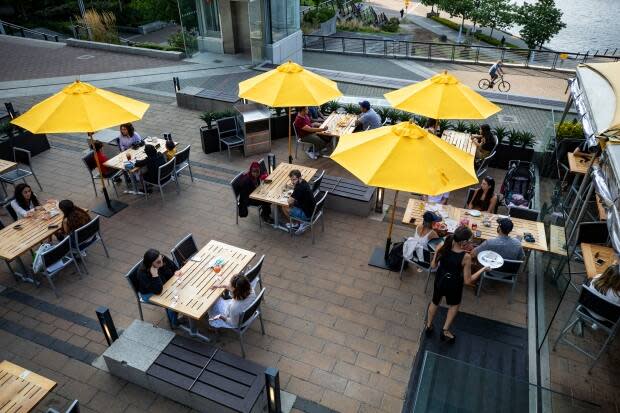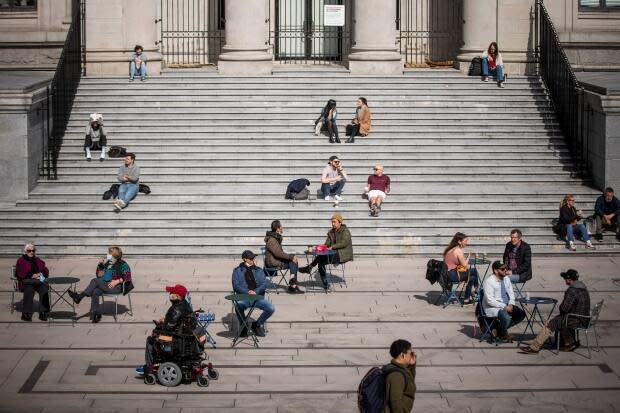Fear of missing out? Forget FOMO. FOGO or fear of going out is real and can be debilitating

For many of us, this weekend's sunny skies and warmer temperatures are a chance to finally bust out the summer wardrobe and head to the beach. But for some, FOGO, or fear of going out, can cause debilitating anxiety.
Sally Chaster of Victoria, B.C., says her fears around contracting COVID-19 while outside the safety of her home grew to the point she couldn't leave her property. Worse still, the realization filled her with self-judgment.
"I'd think, 'Why can't you do it? Look at all these other people. They can go outside. They're happy,'" she said.
Some experts say choosing to stay inside our homes can seem like a valid justification during a worldwide pandemic, especially as case numbers climb and the rise in variants put us at even greater risk.
But Mark Antczak, a registered clinical counsellor and the head of Anxiety Canada, says people need to push back against their fears.
"We get immediate gratification and relief from avoiding the things we are worried about. But then it comes boomeranging back with a vengeance," said Antczak.
FOGO, which affects all ages is a sub-clinical form of agoraphobia, according to Antczak. People with agoraphobia avoid situations due to fear of having a panic attack or other anxiety-related feelings.

At the start of the pandemic, Antczak says, many people with low level anxiety were almost relieved they were being encouraged to stay home.
But over time, without the routine of doing things to keep us mentally healthy — like meeting with friends, going to the gym or gathering for celebrations — our ability to cope in social situations can become threatened.
Anxiety Canada has an app called MindShift which teaches users how to shift thought patterns, get grounded and challenge harmful thoughts.
Push back against the belief
Antczak suggests people work their way up slowly, so if meeting on a patio seems too intense — take a walk to the restaurant and explore it from the outside. Or make plans with just one friend and go to a more relaxed environment.
"Push back against the belief that feeds all this fear in the first place," he said.
Chaster says since the onset of the pandemic her fear of going out grew into agoraphobia. She's in counselling and is practising mindfulness techniques to help with her anxiety.
And since the weather has warmed up, she's been able to step outside her comfort zone for 30 minute walks with her husband and kitten.
"I'm trying to really work on mindful self-compassion and treat myself without judgment," she said.

 Yahoo Finance
Yahoo Finance 